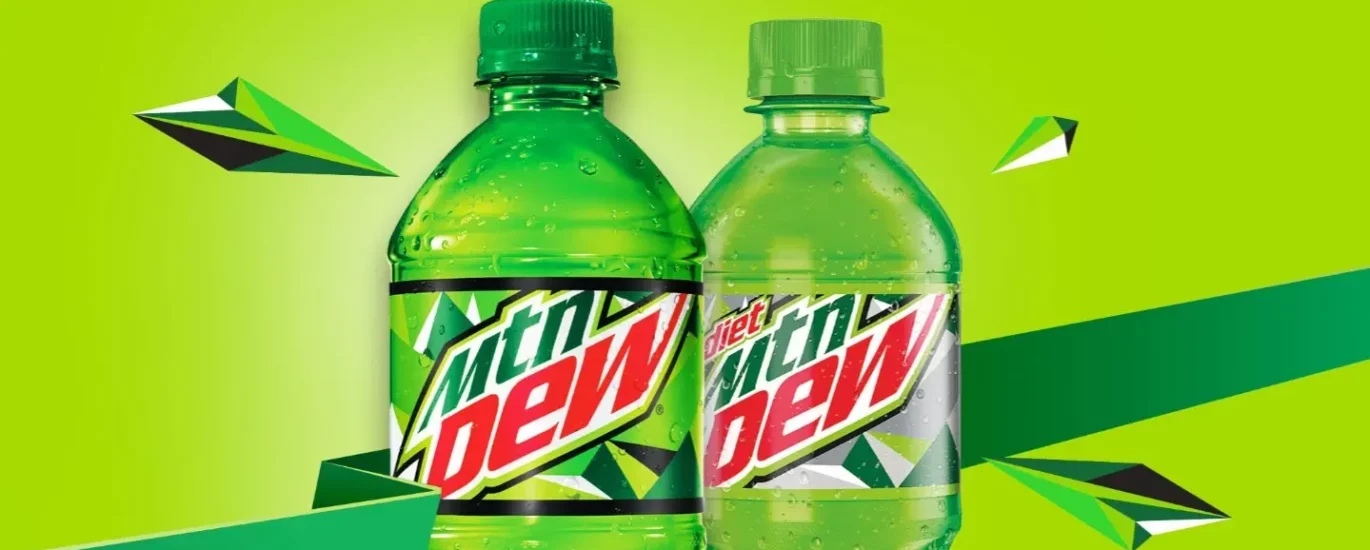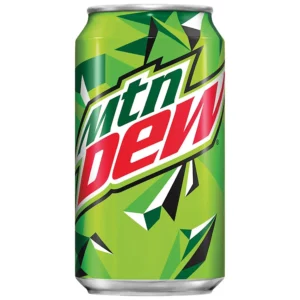


Mountain Dew is a very popular soft cold drink that is very popular almost all around the world. It is famous for its unique and bold taste. Mountain Dew mostly comes in a cold green flavor that has some tangy flavor. People of all ages (teenage, youngster, and old age people) love it’s unique and organic taste. Mountain Dew is a very popular soft drink at the occasion of any festival or event. But most of the time we found many people conscious about their health and diet. For the same purpose people often have a common query related Mountain Dew that weather it is safe for their health or not? People found to be conscious regarding the caffeine content in mountain dew. In this article, we’re going to talk about something that makes people curious and worried—the caffeine in Mountain Dew.
Caffeine is a natural substance that can be present in certain foods and drinks. It’s like a boost for our body and brain. When we have caffeine, it wakes up our brain and makes us feel more alert and awake. Caffeine affects our central nervous system, which is like the control center of our body. It blocks a molecule called adenosine, which normally makes us feel sleepy. By blocking adenosine, caffeine helps other chemicals in our brain, like dopamine and norepinephrine, to become more active. These chemicals help us feel more awake and in a better mood.
We can find caffeine in common things we consume, like coffee, tea, and energy drinks. Coffee is made from roasted coffee beans, and the amount of caffeine can differ depending on how it’s made. Tea, such as black tea or green tea, also has caffeine, although the amount can vary. Energy drinks are designed to give us a quick burst of energy and often have a lot of caffeine along with other ingredients.
Mountain Dew is known for having a lot of caffeine, making it a high-caffeine drink compared to regular colas. Let’s see how its caffeine content compares to other popular beverages and learn about the specific amounts of caffeine in different serving sizes of Mountain Dew. Compared to regular colas, Mountain Dew generally has more caffeine. A typical 12-ounce (355 ml) can of Mountain Dew contains about 54 milligrams (mg) of caffeine, while a can of cola usually has around 34-45 mg of caffeine. So, Mountain Dew has more caffeine than many colas.

However, the caffeine content can vary depending on the specific version or flavor of Mountain Dew. Some variations, like Mountain Dew Code Red or Mountain Dew Kickstart, might have higher caffeine levels. They can contain about 72-92 mg of caffeine per 12-ounce serving. It’s important to check the label or the manufacturer’s information to know the exact caffeine content of the specific Mountain Dew product you have.
Also, remember that serving sizes matter. Mountain Dew comes in different sizes, from small cans to large bottles. The caffeine content mentioned above is for a 12-ounce (355 ml) serving. But if you have a bigger bottle, like 16 ounces or 20 ounces, it may have more caffeine in it. It is important to be aware of your caffeine intake and how it affects you. While moderate consumption of Mountain Dew or other caffeinated drinks is usually fine for most people, it’s good to know your own tolerance and any health concerns you might have.
Here is the commonly caffeine content present in Mountain Dew
| SERVING SIZE | 12 fl oz |
| CAFFEINE CONTENT | 54 mg |
| CAFFEINE STRENGTH | MODERATE |
| CALORIES | 170 |
Consuming caffeine in moderate to high amounts can have different effects on our health. Let’s explore what these effects are and consider the importance of drinking caffeine in moderation. Moderate caffeine intake can be beneficial. It can help us stay focused and improve our physical performance. Caffeine wakes up our brain and makes us more alert and concentrated. Many people enjoy a cup of coffee or a caffeinated drink to start their day or stay attentive while working or studying. Athletes also use caffeine to boost their endurance and reduce fatigue during physical activities.
However, too much caffeine can cause problems. It can lead to issues like trouble sleeping, feeling jittery, and having a faster heartbeat. These effects can disrupt our sleep, making it hard to fall asleep or get a good night’s rest. Some people are more sensitive to caffeine and can experience these problems even with moderate amounts. Having too much caffeine regularly can also make us dependent on it. We might need higher doses of caffeine to get the same effects. Suddenly stopping or reducing caffeine intake can result in withdrawal symptoms like headaches, irritability, and tiredness.
It’s important to drink caffeinated beverages like Mountain Dew in moderation. Moderate caffeine intake is generally safe for most healthy adults. The Food and Drug Administration (FDA) suggests that up to 400 mg of caffeine per day is acceptable. That’s about 4-5 cups of coffee or several servings of drinks like Mountain Dew. However, everyone is different, and some people need to be more careful. Pregnant women, individuals with heart problems, and those who are sensitive to caffeine may need to limit or avoid it.
Mountain Dew is a popular carbonated beverage known for its high caffeine content. Caffeine is a natural stimulant that can increase alertness and improve focus. However, it is important to consume caffeine in moderation and be aware of its potential effects. Moderate caffeine intake can provide benefits, but excessive consumption can lead to side effects like insomnia and increased heart rate. It’s crucial to understand your personal tolerance, consider any health concerns, and seek professional advice when necessary. By practicing moderation and making informed choices, you can enjoy the energizing qualities of Mountain Dew responsibly while prioritizing your well-being.
Read Also: